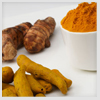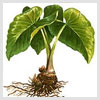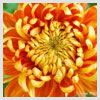Home Remedies for Eczema
Eczema is an inflammatory disease of the skin. It is also known as dermatitis, of which the most common type is atopic dermatitis. Individuals who suffer from eczema usually have a family history of this skin disease or other conditions such as hay fever and asthma. It is not contagious but it can be passed from one generation to the next since it is a hereditary condition. The specific cause of eczema remains unknown to this day but doctors believe that it is caused by a skin defect that impairs its protective barrier. It may also be caused by problems in the immune system of an individual. Eczema can flare up in the presence of certain factors such as detergents, soaps, allergens, stress and a change in temperature. The common symptoms of eczema are skin dryness, redness and itching. It can result in scaly skin, blisters and lesions. It can be cured by using natural remedies.
Natural Remedies for Eczema
Oatmeal as a Home Remedy for Eczema
 Properties: Oatmeal is one of the most popular home remedies for several types of skin conditions including eczema. It possesses certain properties that give relief to the symptoms of eczema. It hydrates the skin and prevents the appearance of scaly patches on the skin. Oatmeal contains proteins, polysaccharides, fats and saponins. The polysaccharides in oatmeal create a protective barrier over the skin that prevents it from drying out. The proteins also help protect the skin from allergens and irritants. The saponins in the oatmeal help make the skin healthy by removing the dirt accumulated in the pores. The fats also help keep the skin supple and hydrated.
Properties: Oatmeal is one of the most popular home remedies for several types of skin conditions including eczema. It possesses certain properties that give relief to the symptoms of eczema. It hydrates the skin and prevents the appearance of scaly patches on the skin. Oatmeal contains proteins, polysaccharides, fats and saponins. The polysaccharides in oatmeal create a protective barrier over the skin that prevents it from drying out. The proteins also help protect the skin from allergens and irritants. The saponins in the oatmeal help make the skin healthy by removing the dirt accumulated in the pores. The fats also help keep the skin supple and hydrated. Treatment for Eczema Using Oatmeal:
Place four cups of uncooked oatmeal in a food processor and grind it into a fine powder. Add the powdered oatmeal to a tub full of warm water. Soak in the oatmeal powder bath for about 15 minutes. Rinse off with warm water and gently towel-dry.Aloe Vera as a Natural Remedy for Eczema
 Properties: Aloe vera is one of the most popular home remedies for treating burns, wounds and infections. It is a common ingredient in beauty products and is also made into dietary supplements because of its many medicinal benefits. Aloe vera is made up of 74 nutrients and 200 components. It is particularly rich in amino acids, iron, vitamin B-12, manganese, zinc, calcium and enzymes. It has antifungal, antibacterial and antioxidant properties. It also helps boost the immune system of the body.
Properties: Aloe vera is one of the most popular home remedies for treating burns, wounds and infections. It is a common ingredient in beauty products and is also made into dietary supplements because of its many medicinal benefits. Aloe vera is made up of 74 nutrients and 200 components. It is particularly rich in amino acids, iron, vitamin B-12, manganese, zinc, calcium and enzymes. It has antifungal, antibacterial and antioxidant properties. It also helps boost the immune system of the body. Cure for Eczema Using Aloe Vera:
Create an aloe vera paste by crushing several aloe vera leaves. Apply the thick paste onto the skin affected by eczema three times a day for one whole month. Aloe vera will help moisturize the skin and provide relief from the itching caused by the dry skin.Turmeric as a Home Remedy for Eczema
 Properties: Turmeric is a perennial plant that can grow as tall as 60 cm to 90 cm. The roots of the plant are what is being sold in the market as turmeric. The roots of the turmeric plant are considered a stimulant, a tonic and an aromatic. It consists of moisture, minerals, proteins, fiber, fat and carbohydrates. Turmeric contains vitamins and minerals such as thiamine, calcium, iron, niacin, carotene and phosphorus. Turmeric is an intestinal antiseptic and helps relieve flatulence. It is also an antispasmodic, antibacterial, anti-inflammatory, antioxidant, anti-tumor and diuretic substance as well as a stimulant. Turmeric is used to treat major organs of the body such as the liver, lungs, heart and skin for various disorders. All these properties make turmeric one of the most popular home remedies for eczema.
Properties: Turmeric is a perennial plant that can grow as tall as 60 cm to 90 cm. The roots of the plant are what is being sold in the market as turmeric. The roots of the turmeric plant are considered a stimulant, a tonic and an aromatic. It consists of moisture, minerals, proteins, fiber, fat and carbohydrates. Turmeric contains vitamins and minerals such as thiamine, calcium, iron, niacin, carotene and phosphorus. Turmeric is an intestinal antiseptic and helps relieve flatulence. It is also an antispasmodic, antibacterial, anti-inflammatory, antioxidant, anti-tumor and diuretic substance as well as a stimulant. Turmeric is used to treat major organs of the body such as the liver, lungs, heart and skin for various disorders. All these properties make turmeric one of the most popular home remedies for eczema. Natural Remedy for Eczema Using Turmeric:
Add a few drops of water to a tablespoon of turmeric powder. Mix thoroughly to create a paste. Apply the turmeric paste directly to the skin.Taro as a Cure for Eczema
 Properties: Taro is a tropical plant that is a food staple in some cultures. It comes in different colors; there is green, purple and white taro. The leaves, tubers and the stems of the taro plant are used for various medicinal purposes. Taro is rich in iron, potassium, phosphorus, thiamin, riboflavin, zinc, calcium, vitamin C, vitamin B6, manganese, niacin, copper as well as fiber. The tubers of the taro plant are rich in starch and are very nutritious when cooked. It is not advisable to eat any part of the taro plant uncooked because it contains calcium oxalate crystals that can cause irritation to the throat. It will also leave a burning sensation in the mouth and down the throat. The taro plant can be used to treat infections, stop bleeding, treat sores, reduce fever, treat skin diseases, treat stomach disorders and reduce swelling. For all these properties it is used as one of the most famous natural remedies for eczema.
Properties: Taro is a tropical plant that is a food staple in some cultures. It comes in different colors; there is green, purple and white taro. The leaves, tubers and the stems of the taro plant are used for various medicinal purposes. Taro is rich in iron, potassium, phosphorus, thiamin, riboflavin, zinc, calcium, vitamin C, vitamin B6, manganese, niacin, copper as well as fiber. The tubers of the taro plant are rich in starch and are very nutritious when cooked. It is not advisable to eat any part of the taro plant uncooked because it contains calcium oxalate crystals that can cause irritation to the throat. It will also leave a burning sensation in the mouth and down the throat. The taro plant can be used to treat infections, stop bleeding, treat sores, reduce fever, treat skin diseases, treat stomach disorders and reduce swelling. For all these properties it is used as one of the most famous natural remedies for eczema. Home Remedy for Eczema Using Taro:
Crush the leaves of the taro plant to create a thick paste. Apply the paste directly on the skin affected by eczema.Chrysanthemum Parthenium as a Natural Remedy for Eczema
 Properties: Chrysanthemum Parthenium is also known as feverfew. It is a perennial herb that grows in hedgerows and has dainty, white and yellow flowers that look very similar to daisies. It emits a bitter and strong smell that insects and bees do not like. It has long been used as a natural insect repellant. Chrysanthemum Parthenium has been proven to be very effective in curing headaches, reducing fever and treating arthritis and digestive problems. Its active ingredients are tenetin and parthenolide. It also contains high amounts of melatonin.
Properties: Chrysanthemum Parthenium is also known as feverfew. It is a perennial herb that grows in hedgerows and has dainty, white and yellow flowers that look very similar to daisies. It emits a bitter and strong smell that insects and bees do not like. It has long been used as a natural insect repellant. Chrysanthemum Parthenium has been proven to be very effective in curing headaches, reducing fever and treating arthritis and digestive problems. Its active ingredients are tenetin and parthenolide. It also contains high amounts of melatonin. Home Remedy for Eczema Using Chrysanthemum Parthenium:
Add ten leaves of the Chrysanthemum Parthenium to one cup of boiling water and allow to boil for another thirty minutes. Strain the liquid and consume 20 ml of the cooled liquid two times a day for one week.Lemon as a Home Remedy for Eczema
 Properties: Lemon has been used as a cooking ingredient for generations. The juice and the rind are the most commonly used parts of the lemon both for cooking and medicinal purposes. It is a great and natural substitute for vinegar. The lemon is rich in alkaline elements. It is a popular source of vitamin C as it contains high amounts of this nutrient. It is also rich in other nutrients such as vitamin B-1 and potassium. Lemon juice is very effective in getting rid of the toxins in the body so they are very effective when used for detoxification. It has both antiseptic and antibacterial properties that help to treat various health problems. All these properties make lemon one of the best natural remedies for eczema.
Properties: Lemon has been used as a cooking ingredient for generations. The juice and the rind are the most commonly used parts of the lemon both for cooking and medicinal purposes. It is a great and natural substitute for vinegar. The lemon is rich in alkaline elements. It is a popular source of vitamin C as it contains high amounts of this nutrient. It is also rich in other nutrients such as vitamin B-1 and potassium. Lemon juice is very effective in getting rid of the toxins in the body so they are very effective when used for detoxification. It has both antiseptic and antibacterial properties that help to treat various health problems. All these properties make lemon one of the best natural remedies for eczema. Cure for Eczema Using Lemon:
Squeeze the juice from half a lemon and apply the juice directly onto the skin. Always use fresh juice to get the best results.Other Home Remedies for Eczema:
Apply a light coat of coconut oil to the skin to hydrate it and stop the itching caused by eczema.
Make a paste out of one teaspoon camphor and one teaspoon of sandalwood. Apply the paste directly to the skin affected by eczema.
Mash some spearmint leaves to extract the juice. Apply the juice to the skin to soothe the pain and itching caused by eczema.
Grind the dried seeds of some papaya fruits. Apply the papaya seed powder to the skin to treat eczema.
Combine one tablespoon of turmeric powder and one tablespoon of neem leaves to make a paste. Apply the paste directly onto the skin.
Combine dandelion leaves, oil and spearmint leaves, then crush them to make a thick paste. Apply the paste to the skin and leave on for 30 minutes before rinsing off with warm water.
Mash a few almond leaves with a small amount of water to create a paste. Use the paste as a treatment for eczema.
Add white bark, elm bark and comfrey root to a pot of boiling water. Let it cool down and use the water to wash the parts of the body affected by eczema.
Peel one mango and slice off the pulp. Boil the pulp in a small amount of water to create a thick paste. Let it cool down and apply the paste directly onto the affected areas of the skin. Continue the treatment for 15 days to get results.
Make a paste out of nutmeg and a little water. Apply the nutmeg paste to the skin three times a day.
Combine fresh carrot juice and spinach juice in a glass. Use the liquid to wash the areas affected by eczema.
Diet for Eczema:
Avoid drinking alcoholic drinks because they can dehydrate your skin and cause the eczema to return.
Drink plenty of fluids such as water and fresh fruit juices.
Increase the intake of vitamin B-6 by eating foods rich in this vitamin as diet for eczema.
Always eat a banana everyday to help relieve the symptoms of eczema.
Avoid drinking coffee, tea and cola.
Refrain from eating foods that are high in sugar.
Avoid eating foods that contain preservatives, flavorings and chemical additives.
Do not eat vegetables like radish and cucumber because they can aggravate the eczema.
Use spices in moderation when preparing your diet for eczema.
Avoid eating nuts because they can cause severe itching.
| Add your Home Remedy below.. | |

